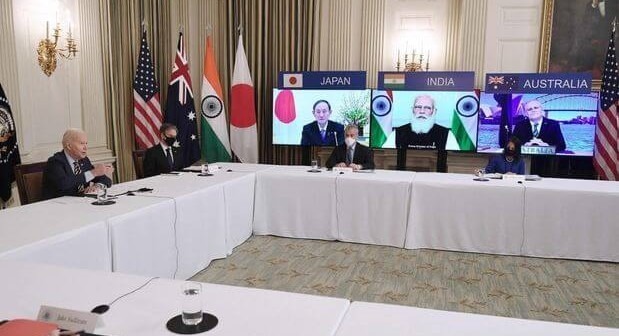
US President Joe Biden Meets With World Leaders in Quest for More Covid-19 Vaccine
President Joe Biden opened a virtual summit on Friday with leaders of Japan, India and Australia. The meeting focused on expanding the availability of coronavirus vaccines in Asia.
The effort comes as Southeast Asia faces acute vaccine shortages, prompting concern among health officials over the spread of Covid-19 and its variants.
The meeting this morning featured Mr. Biden and Vice President Kamala Harris speaking virtually with Prime Minister Narendra Modi of India, Prime Minister Scott Morrison of Australia and Japanese Prime Minister Yoshihide Suga.
The White House and the Japanese government also announced that Mr. Suga will visit Mr. Biden at the White House next month, becoming the first foreign leader to do so. Mr. Suga was elected Japan’s prime minister in September, succeeding Shinzo Abe, who resigned because of poor health.
The U.S., Japan, India and Australia comprise a strategic alliance known as the Quad focused on addressing mutual concerns over China. Friday’s meeting comes as Mr. Biden looks to address foreign policy while tackling the Covid-19 pandemic at home, having signed a $1.9 trillion recovery bill on Thursday.
The four leaders were meeting on a plan to boost India’s Covid-19 vaccine manufacturing capacity and to provide the doses to other countries, officials said. The officials said production could be increased by one billion doses by next year.
“What we’ve tried to put together is a broad-based approach that addresses the acute shortage of vaccines across Southeast Asia,” a senior U.S. official said.
The shortages have prompted foreign policy concerns, in that Chinese offers to provide countries with vaccine supplies may elevate Chinese influence with countries in the region.
Later next week, Secretary of State Antony Blinken and national security adviser Jake Sullivan will meet with Chinese counterparts in Alaska, following a U.S. delegation trip to Japan and South Korea. The U.S. said it would discuss trade, technology issues and human rights.

